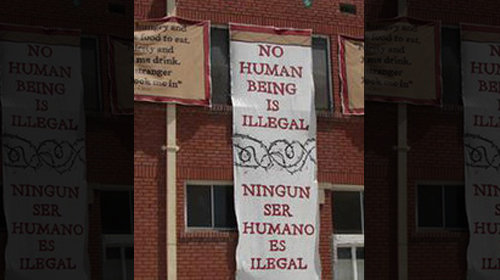
The love of a parent is immeasurable and immigrant parents are no different than any other parent. Families will do anything for their children and they often move to another country to give them better lives. My family migrated from Ecuador in 1996 while I was in fifth grade. Though the transition was rough, I found hope when my ESL teacher told me about the American Dream and the benefit of a good education.
Last week the Obama administration issued a new policy that will throw a lifeline to undocumented youth like me, making them eligible to apply for a deferral of deportation for two years and a work permit. Lives will be changed just like mine was, and it is wonderful to know that, at least for a time, many talented young people will finally get to live out their dreams, and like many immigrants before us, make significant contributions to the country we love. This is a step in the right direction. But while many young people will have the opportunity to work, without the DREAM Act, they still will not have the opportunity to become citizens of the country they call home.
In 2004, I was a senior in high school ready to graduate with honors, and I was undocumented. I found out about the DREAM Act, which gave me hope. I made copies of fliers in my spare time and distributed literature about the law all over my city. Ultimately, I feared my goal of college was slipping away as the DREAM Act failed to pass. I felt helpless as my dream of a college education was dependent on the legislators on Capitol Hill. I couldn’t wait and I called multiple universities to inquire about their admissions policies. This was a terrible struggle for a young adult. And an education couldn’t solve the larger problem of my immigration status. I continued to hide my status while being surrounded by people who were just like me, living out their lives as normal college students.
Everything finally changed when I was able to obtain legal permanent residency through a family petition in 2007. I graduated in 2008, becoming the first person in my family to graduate from college. And unlike many undocumented students who graduated with me, I found work in my field. I finally had the American Dream, the education, the job and the house. I am one of the few lucky ones.
But my interest in immigrants’ rights didn’t end with obtaining a permanent residency. As a staff member for the ACLU, I traveled with the nationwide MiACLU tour—Estamos Unidos—to mobilize communities against discriminatory, anti-immigrant state laws like Arizona SB 1070 and fight for families like mine. The parents we met during the tour brought back memories of my own family’s struggle. Every mother we met reminded me of my mother, who cried with me when we realized that I may not go to college. While on the road, we heard countless stories of families who were separated by SB 1070 copycats, like Alabama’s notorious HB56. I still wear my “One Family, One Alabama” bracelet in honor of those families that fight to stay together every day.
The new policy does not provide relief for families—including my own. Obtaining my residency changed my life, but it didn’t fix it. I am still worried about deportation because one of my parents is still undocumented. What is the point of having a job, and working so hard, when my family could be split apart at any moment? The thought of losing a parent to deportation is heartbreaking. The administration has given us hope, but there is still so much more work to be done to ensure immigrant families like mine are not torn apart.
Learn more about immigrants' rights: Sign up for breaking news alerts, follow us on Twitter, and like us on Facebook.





